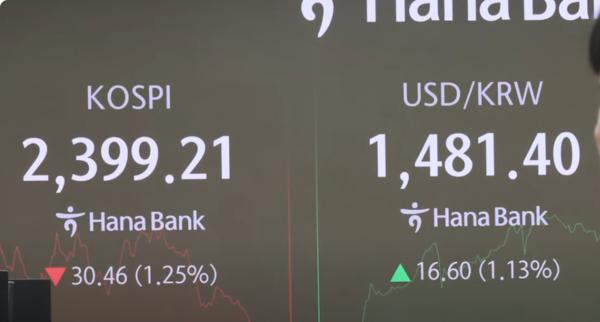Significant Outflow of Foreign Investment Funds
The Bank of Korea's recent report, "International Financial and Foreign Exchange Market Trends," has revealed a startling trend: foreign investors withdrew a whopping $3.86 billion from South Korea's stock and bond markets in December alone. This marks the largest outflow since the onset of the COVID-19 pandemic in March 2020.

Understanding the Causes
Domestic bonds experienced their first net outflow in nine months, with $1.28 billion exiting the market. Stocks weren't spared either, witnessing a net outflow of $2.58 billion, continuing a five-month trend of foreign divestment since August last year. The reasons behind this significant withdrawal include political instability in South Korea, the maturity of government bonds, and the persistent interest rate gap with the United States.
Expert Insights
Prof. Choi Nam-jin from Wonkwang University warns, "If distrust in the South Korean economy continues to grow even after bond maturity, foreigners may further reduce their bond investment proportion. Such portfolio adjustments could lead to a weakening won and other vicious cycles."
Adding to the concerns, the credit default swap (CDS) premium for South Korea's five-year foreign exchange stabilization bonds rose to 0.36 percentage points in December, up from 0.32 in October and 0.34 in November, signaling growing market concerns about South Korea's economic stability.
Looking Ahead
Experts remain cautious about the immediate return of foreign bond funds to South Korea. Prof. Yang Jun-seok of the Catholic University notes, "While the bond sell-off may be temporary, whether it turns into a net inflow depends on how quickly domestic uncertainty is resolved."
This outflow of foreign investment funds not only highlights financial issues but also reflects broader economic and political challenges facing South Korea, reminiscent of the significant outflows during the COVID-19 pandemic in March 2020.






Comments